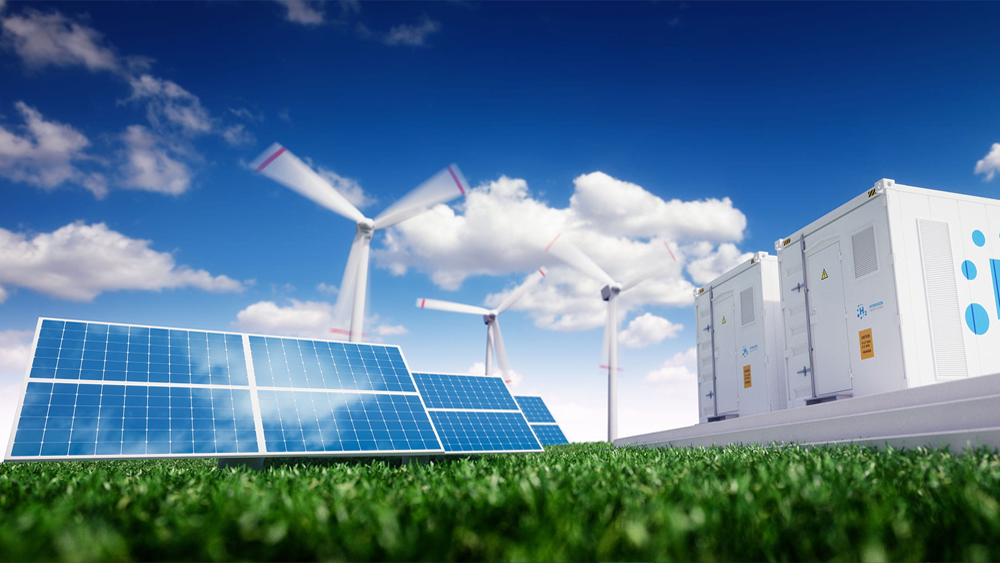
The hydrogen home energy storage market was valued at USD 2.6 million in 2017 and is expected to reach USD 29 million by 2025, growing at a CAGR of 12% during the forecast period. The growth of this market is driven by the increasing use of renewable energy sources such as wind and solar power, reducing the cost of building a distributed generation system using these sources, and growing demand for hydrogen-based energy storage systems in residential applications.
Market Overview
The market for hydrogen home energy storage is seen to be driven by increasing demand for renewable energy and the need for energy efficiency. The market is also expected to benefit from increasing investments in R&D, which will lead to cost reduction through innovative and efficient solutions.
Other factors that are driving this market include rising concerns about climate change, technological advancements in fuel cells, and decreasing costs of hydrogen production technologies. As an alternative source of power generation, these factors are expected to improve the economics of hydrogen-based systems compared with traditional fossil fuels.
The global home energy storage market was valued at $1 billion in 2018 and is projected to reach $5 billion in 2028 growing at a CAGR of 39% during the forecast period (2020-2028).
Global market analysis
The global hydrogen home energy storage market size is expected to reach USD 8.80 billion by 2026 from USD 1.14 billion in 2017, at a CAGR of 18.5%. The base year considered for this study is 2016, and the forecast period is 2017 to 2026.
The key players operating in the global hydrogen home energy storage market include Bosch Group (Germany), Hyundai (South Korea), Panasonic Corporation (Japan), Samsung SDI Co Ltd (South Korea) and AES Energy Storage LLC (US).
Regional market analyses
North America is the largest market for hydrogen home energy storage (HES) systems. The US accounts for a majority of the demand due to its high penetration of electric vehicles and energy storage systems. At the same time, Canada has also seen an increase in HES installations as it is part of the North American Free Trade Agreement (NAFTA). The introduction of new regulations that encourage renewable resources could boost sales further in 2020.
The European market will continue to see growth but at a slower pace compared with North America. This can be attributed to lower adoption rates among countries such as Germany and France and a lack of incentives from governments. In addition, a large part of Europe’s population resides in urban areas where most people have access to public transportation networks making them less likely to own electric vehicles or HES systems than their counterparts in North America who tend towards suburban lifestyles with adequate space available inside their homes or garages where they park their cars during night-time hours when power demand spikes are highest often leading them into purchasing additional equipment like solar panels/wind turbines along with other appliances which can easily draw up energy from these sources thus reducing reliance on conventional power grids causing them not only save money on electricity bills but also helping reduce greenhouse gas emissions by lowering carbon footprints over time if all goes well!
Key country of focus: South Korea
South Korea is the leading country in terms of hydrogen energy storage market share, and it is also the fastest-growing country in this market. South Korea will continue to lead the market over the forecast period
According to a report by Transparency Market Research (TMR), the global hydrogen energy storage market was valued at US$1.52 billion in 2016, and it is expected to reach US$10.36 billion by 2025. In Asia Pacific alone, the hydrogen energy storage market was valued at US$0.5 billion in 2016 and is projected to register a CAGR of 19% over 2017-2025
Leading companies in the hydrogen energy storage market
The hydrogen home energy storage market is led by a number of companies, including Honda, Toyota, and Hyundai. Toyota released a hydrogen-powered vehicle called the Mirai in 2014. The company has been working to develop new technologies that will help make it easier for people to adopt hydrogen fuel-cell vehicles without having to worry about range anxiety or getting stranded on the side of the road with an empty tank. Other leading players include Nissan Motor Co., BMW AG, General Motors Co., Volkswagen AG’s Audi AG unit, and Renault SA’s Nissan Diesel & Turbo Technologies Co..
Ford Motor Company and Daimler AG’s Mercedes-Benz GmbH also have their eyes set on this emerging market segment; however, neither plans on entering it until 2025 at least due to high costs associated with manufacturing clean-energy cars in mass quantity at competitive prices compared with internal combustion engines (ICE).
These countries are showing great potential for growth in the hydrogen home energy storage market.
- South Korea
- Japan
- USA
- Germany
- Australia
- China
Conclusion
The hydrogen home energy storage market is a growing industry, with many countries showing great potential for growth. In particular, South Korea has been making some big strides in this area and we could soon see them take the lead in terms of hydrogen home energy storage systems. Companies like Hyundai and Samsung are looking to compete with Tesla by offering their own models which will be able to store renewable energy at home or work without needing batteries or solar panels installed on site.
